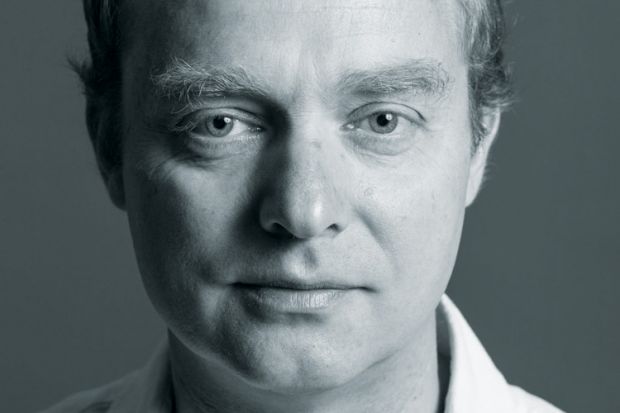What were the books you loved most as a child?
Long before I started to read or enjoy big books, I was seduced by abridged versions of classic fiction on vinyl records – the rattling chains in Alexandre Dumas’ The Count of Monte Cristo; Mark Twain’s Tom Sawyer; and, inevitably for a boy growing up in Germany, Karl May’s fantastic tales of Winnetou, the noble young chief of the Apache – each scratching their way around a turntable at 33rpm in little over 30 minutes. The book that literally opened up the world for me was the Diercke Weltatlas, an atlas of the world, handed out to us in seventh grade in Hamburg – a gift of the city, not a private purchase – and which has accompanied me ever since. It was (and remains) a treasure trove, with maps on climate and tourism, different types of urban settlement and river basins, mineral resources and shipping routes and much else in addition to countries and continents.
Which academic work was most influential to you as an early career scholar?
In the first year of graduate school, we were set the exercise of writing a proper review of a seminal history book. I must have been in a rather overconfident mood, because I picked Fernand Braudel’s Civilization and Capitalism – three thick volumes on the transformation of the world from the 15th century to the 18th century. I am still unconvinced by how he separated daily life and commerce from the “perspective of the world”, but that does not make his vision and range any less mesmerising. Braudel made me think about how to integrate the micro and macro, instead of settling for one or the other.
The subject of your new book, ‘Empire of Things’, is consumption. What is the most you have ever spent on a book?
The Oxford English Dictionary, which cost many hundreds of dollars in 1997, was a gift to my wife, who cares about words and their meanings. Hardly a week goes by when we do not consult one of the 20 volumes. The most recent word was “sensate”: worth checking out! You could see the OED as a good example that consumption is not all about living in a throwaway society. It also includes building up “stock” and hanging on to possessions. In this case, spending money was probably a good investment.
What was the last book that surprised or infuriated you, and why?
I had put off reading the Nobel prizewinner Herta Müller’s The Hunger Angel when it originally appeared in 2009, because, let’s face it, for a modern historian, a novel about a forced labour camp in Soviet Ukraine, based on survivors’ accounts, is not exactly distraction from the day job. I was wrong. It turned out to be a work of poetic beauty, where, amidst the violence and suffering, words rise to sing and hunger morphs into an angel who leads the protagonist to survival. Müller grew up among the German-speaking Banat Swabian minority in Romania and her own mother had been deported to a gulag. A truly original wordsmith, she preserved bits of that older German and added magical fusions of her own, such as Atemschaukel, the German title of the original, which visualises how in the camp, the inmate’s “breathing” ceases to be unconscious and starts to “swing”.
What keeps infuriating me are books on consumerism that are moralistic and utterly predictable and self-righteous – but that would be a very long list.
What is the last book you gave as a gift, and to whom?
Coralie Bickford-Smith’s The Fox and the Star, a modern fable that is both beautiful and wise – a gift to my wife, two children and our gentle dog. Coralie designed the elegant cover of my new book and made it a piece of art.
What books are on your desk waiting to be read?
I’m looking forward to sailing across the eastern Mediterranean in the 16th century with the polyglot Noel Malcolm as my pilot, and his book Agents of Empire: Knights, Corsairs, Jesuits and Spies in the Sixteenth-Century Mediterranean World, to learn what we have forgotten about earlier interactions between Christians and Ottomans. Closer to the present, I want to find out more about what happened to right and wrong in the modern world. Fortunately there is Derek Parfit’s On What Matters to guide me up the sides of this ethical mountain. And I have saved up Elena Ferrante’s L’amore molesto to return to the brute restlessness of life in Naples.
Frank Trentmann is professor of history, Birkbeck, University of London, and author of Empire of Things: How We Became a World of Consumers, from the Fifteenth Century to the Twenty-first (Allen Lane).
POSTSCRIPT:
Print headline: Shelf Life
Register to continue
Why register?
- Registration is free and only takes a moment
- Once registered, you can read 3 articles a month
- Sign up for our newsletter
Subscribe
Or subscribe for unlimited access to:
- Unlimited access to news, views, insights & reviews
- Digital editions
- Digital access to THE’s university and college rankings analysis
Already registered or a current subscriber?
